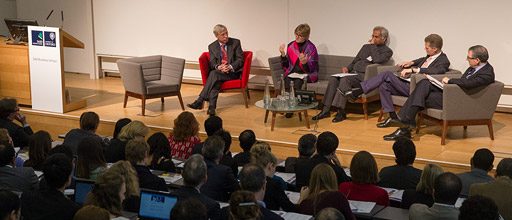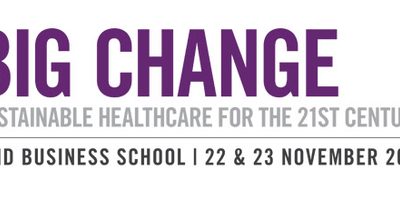
Indian health care professionals attend Big Change Conference
On 22 and 23 November 2013, hundreds of people came to Oxford and took part in an inaugural event aimed at addressing the global challenges facing the world in the 21st century. Big Change: sustainable healthcare for the 21st century, specifically looked at ways to stimulate affordable innovation and how it can best be used to address the global financial challenges, particularly in resource-poor settings, to provide care to the millions people who need it most.
In order to tackle such a wide-ranging theme, globally renowned speakers from a variety of disciplines presented their views on the future of healthcare. This was an acknowledgement that healthcare professionals and politicians cannot tackle this issue alone. It needs the support of business, government, governing bodies, the media, innovators, investors and academia and all of these groups came together to share knowledge and identify potential solutions.
Nicolaus Henke, of McKinsey and Co, talked about the ‘McDonald’s approach to medicine’, coming at the subject with an expertise of international approaches to health systems and service delivery. Dame Sally Davies on the other hand, identified antibiotic resistance and child obesity as two of the key challenges facing us now and in the coming decades.
From an Indian perspective, Lord Crisp chaired the session that included Jaideep Prabhu (co-author of Jugaad Innovation) and Balram Bhargava (Stanford-India Biodesign) who presented ways in which ‘jugaad innovation’ in India affects the way healthcare is delivered there, and how developed nations may benefit from this approach.
The Health Secretary to the Government of India, Keshav Desiraju, said that the implementation of affordable health care required the coming together of many approaches and existing funding was enough to make this turn-around.
Representatives from GE spoke about the reverse innovation program that they have successfully pioneered in the past few years with Bangalore as the hub of such experimentation.
This is only a snapshot of the discussions that took place during the two days, but they demonstrate the enormity of the task facing humanity in the coming decades.
There were eleven sessions in total, and in the coming weeks each session will be reviewed in our blog by academics from The George Institute, India.


